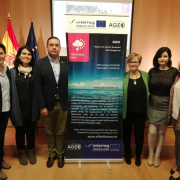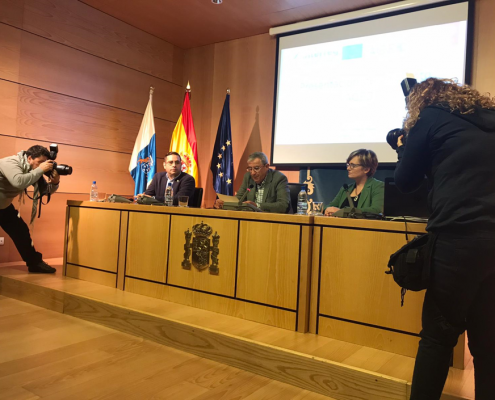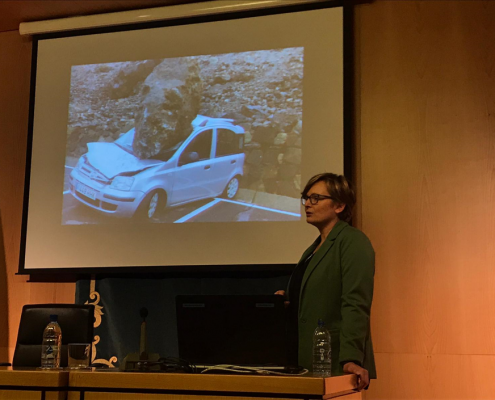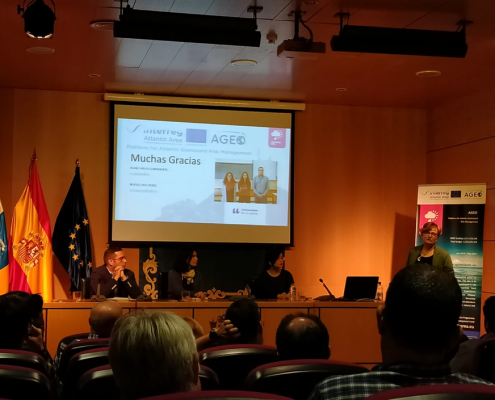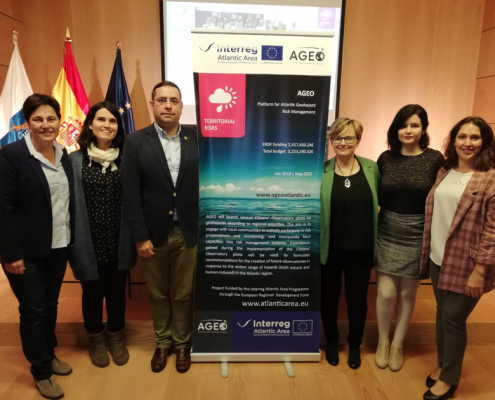AGEO event, Canary Islands
On the 27th of January, an event of half a day was organized by the Geological and Mining Institute of Spain (IGME), the University of La Laguna (ULL) and La Palma Research Centre (LPRC) with the collaboration of the Spanish Government delegation in the Canary Islands, to introduce and disseminate the activities of the AGEO Interreg Atlantic Area project to the relevant stakeholders in the region.
AGEO aims to launch several pilots on citizen observatories to highlight how citizen involvement in risk prevention can strengthen regional and national management systems, and the outcome of this specific initiative will be used to formulate recommendations for the creation of future permanent observatories in response to the wide range of hazards in the European Atlantic areas – floods, fires, earthquakes, among others.
The Canarian pilot is being organized in Gran Canaria, Tenerife and El Hierro, with a focus on landslides, where the collaborators will reach out to local communities in order to get them actively involved in the preparation and surveillance of landslides in an Archipelago with a very particular geological activity and characteristics.
The day of the presentation at the Delegation of the Government in the Canary Islands involved Ariadna Ortega, representing La Palma Research Centre, as well as Juan Carlos Santamarta, of the University of La Laguna, who focused on the details of the present and future activities of AGEO. The Geological and Mining Institute of Spain, an autonomous research body attached to the Ministry of Science and Innovation, was represented by Isabel Montoya and Inés Galindo, who illustrated the work of the Copernicus Program and its Management Service (EMS) and the work that will be materialized in the Citizens’ Observatory of the Canary Islands.

